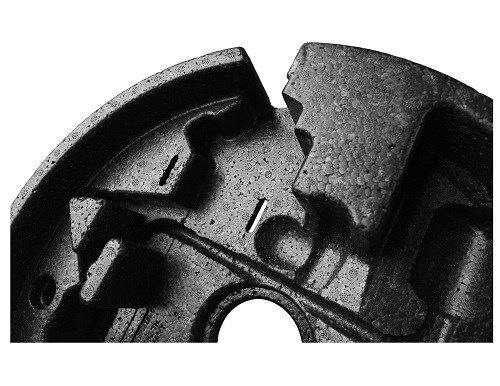"Arpro" EPP Manufacturer Exceeds Sustainability Goals; Launches EPE Sheet Foam Business
JSP, manufacturer of Arpro EPP, is ahead of the game in meeting its five-year target to reduce its carbon footprint, and has also now launched a new expandable PE sheet foam business in North America.
JSP (U.S. office in Madison Heights, Mich.), a pioneer and world leader in engineered plastic foam technologies and most widely known as the manufacturer of Arpro EPP, recently reported that it is more than meeting its ambitious Minus40% project to reduce its environmental impact by 40%. The program was launched in 2012, and by end of this year, JSP expects to have reached the 30% mark, according to Paul Compton, president and CEO Europe, Middle East and Africa.
By the end of July, JSP had achieved a 23% reduction in CO2 emissions, water use and waste; had saved 2.38-million/gal of water; and generated a 13,000 kWh/yr electricity savings through new LED lighting installed across its plants. It has also placed economizers on all boiler stacks, heat recovery on compressors and boiler feed water tanks. Currently in planning is a project that would see the recycling and re-use of CO2 to achieve up to 39% savings if installed in two Arpro plants. It would involve recycling CO2 directly from the production line, which would be captured, compressed, liquefied and stored ready for re-use.
Moreover, the company set about conducting research to reduce energy requirements of its Arpro EPP, now used widely in automotive, packaging and a range of consumer goods, which led to the development of a further improved version: Arpro 1000. This bead can be expanded on-site and according to JSP, it can provide the same molding cycle times, shrinkage and appearance characteristics as conventional molding beads. It is also possible to mold a density range from 18-60 g/l with a single grade. The intent of this development was to help redress geographic logistic penalties by significantly reducing transport costs and emissions, increasing the likelihood of material adoption regardless of location.
Meanwhile, JSP has now launched a crosslinked expanded PE sheet foam business in North America that utilizes an electron beam cross-linked method. Compared to chemically cross-linked PE sheet, the electron beam technology produces more uniform and finer cellular structure and surface. Applications include high-performance tape medical applications, general and industrial converting solutions, flooring, and automotive components. Currently, PE sheet foam is being produced at JSP’s plant in Detroit. To accommodate future increases in demand, it is constructing a 3400 sq.mt. PE sheet foam manufacturing facility in Jackson, Mich., close to its existing plant that produces EPP packaging and components.

Related Content
-
Prices of All Five Commodity Plastics On the Way Up
Despite earlier anticipated rollover in prices for most of the volume commodity resins, prices were generally on the way up for all going into the third month of first quarter.
-
Prices for All Volume Resins Head Down at End of 2023
Flat-to-downward trajectory for at least this month.
-
Fundamentals of Polyethylene – Part 5: Metallocenes
How the development of new catalysts—notably metallocenes—paved the way for the development of material grades never before possible.
















